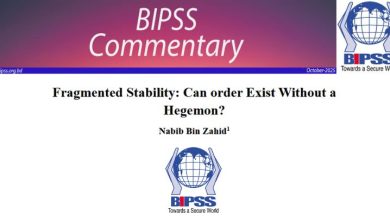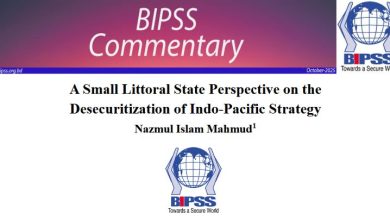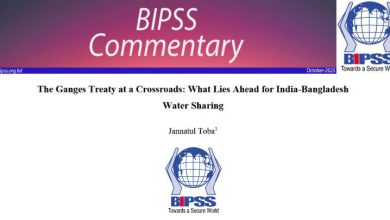
Israel vs Iran: How the Expanding Shadow War Could Spill into South Asia
The Israel-Iran war of June 2025 has shattered any illusion that their shadow conflict could remain confined to the Middle East, creating a cascade of destabilizing effects across South Asia. Pakistan’s fragile balancing act between Iran, Saudi Arabia, and its own Shia-Sunni dynamics is under acute strain, while India faces the risk of inflaming domestic and regional Muslim sentiment due to its close ties with Israel. Afghanistan’s lawlessness could make it a new proxy battlefield, as Iranian-backed groups and Sunni extremists vie for influence. Bangladesh, heavily reliant on Gulf remittances, faces economic vulnerability if conflict-driven instability disrupts Middle Eastern labor markets, aviation, or energy supply chains — all of which could drive up costs and inflame local unrest.
BIPSS Research Assistant Mohosina Mostofa urged in this commentary that to mitigate these dangers, South Asian governments must boost intelligence cooperation against extremism, pursue balanced diplomacy with both Gulf and global powers, and invest in energy diversification and strategic reserves — all while maintaining regional unity to prevent external conflicts from dragging South Asia into wider geopolitical confrontations.



